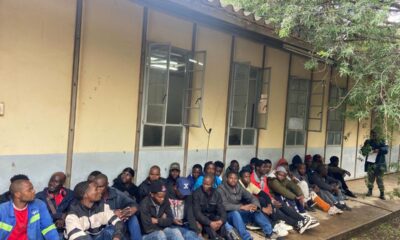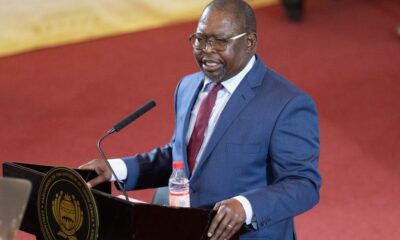Business
IRR Calls for Bold Reforms: Scrap B-BBEE and Labour Laws to Fix South Africa’s Jobs Crisis

South Africa is in the grip of a jobs crisis. With unemployment sitting at 33.2%, the highest in decades, frustration over failed economic promises is boiling over. Now the Institute of Race Relations (IRR) has thrown down a controversial gauntlet: scrap Broad-Based Black Economic Empowerment (B-BBEE), abandon the ANC’s National Democratic Revolution (NDR), and roll back restrictive labour laws.
The IRR believes these steps could slash unemployment to below 10% within a decade, unleashing job creation and restoring growth. Their newly released report, Blueprint for Growth: Generating Jobs and Skills, argues that South Africa’s economy is being held hostage by outdated and damaging policies.
“Cutting Away the Dead Wood”
Anthea Jeffery, the IRR’s head of policy research and lead author of the report, was blunt in her assessment:
“We need a stronger government that will cut damaging policies away. We need to deal with the crisis of unemployment. Ideally, we need to get to a stage when the ANC is cut down to size.”
For Jeffery, the NDR and B-BBEE are at the heart of the problem. She contends that empowerment should be race-neutral and based on contribution and disadvantage, not rigid racial formulas. In her view, the current system has entrenched elites rather than lifted the poor.
The Harsh Numbers Behind the Debate
South Africa’s job market paints a grim picture. The report notes:
-
900,000 net new jobs a year are needed to drive unemployment below 10%.
-
Over the past 20 years, the country has only managed 240,000 a year.
-
Since 1994, unemployment has ballooned from 20% to 33.2%.
Even the Government of National Unity (GNU), which promised a reboot of economic growth, is struggling. In the last quarter of 2024, GDP grew by a paper-thin 0.1%, down from 0.4%. For ordinary South Africans, that means stagnant wages, little hope of formal jobs, and continued reliance on social grants.
Labour Laws Under Fire
Perhaps the IRR’s most controversial recommendation is to relax South Africa’s labour laws. The report argues that rigid rules around retrenchments, minimum wages, and dismissals have priced millions of unskilled workers out of the market.
Proposals include:
-
Letting unemployed people opt out of labour law protections for a limited period to gain work experience.
-
Allowing employers to pay entry-level workers the same rates offered under the Expanded Public Works Programme.
-
Making it easier for firms to retrench or dismiss workers under clear, contractual terms.
Critics on social media have already labelled these ideas as “a rollback of hard-won workers’ rights,” while supporters argue they could open the door to mass hiring in labour-intensive industries.
Agriculture, SEZs, and the Promise of Growth
The IRR also points to sectors that could absorb large numbers of workers if freed from what it calls “damaging state interventions.”
-
Agriculture: Output has doubled since 1994, but Jeffery argues it could expand by another 15% to 30% with the right reforms.
-
Special Economic Zones (SEZs): The report says South Africa should look to China’s modelattracting investors with fewer restrictions and flexible labour frameworks. Currently, SEZs are too tightly controlled by government policy to replicate that success.
She also called for scrapping the 21 Sector Education and Training Authorities (SETAs), describing them as “costly and wasteful.”
A Country Divided on the Way Forward
The IRR’s report is bound to reignite fierce debate. For some, scrapping B-BBEE and diluting labour protections sounds like a direct assault on transformation and workers’ rights. For others, it’s a necessary reset in a country where millions of young people remain locked out of the economy.
On X (formerly Twitter), the reactions were swift:
-
“Scrapping B-BBEE is code for scrapping transformation. IRR just wants to keep the old order intact.”
-
“We’ve tried the same failed model for 30 years. Maybe it’s time for a radical shift.”
At its heart, the debate reveals a deeper tension in South African politics: how to balance redress with growth.
Can South Africa Afford Not to Try?
The IRR’s proposals may be contentious, but the urgency of the problem cannot be denied. With one in three South Africans unemployed and the economy barely moving, the stakes could not be higher.
Whether or not the GNU takes the advice, the conversation around scrapping B-BBEE, loosening labour laws, and resetting empowerment policies has now been placed firmly on the table.
The real question is not whether the IRR’s blueprint is politically palatable, but whether South Africa can afford to ignore it.
{Source: The Citizen}
Follow Joburg ETC on Facebook, Twitter , TikTok and Instagram
For more News in Johannesburg, visit joburgetc.com



























